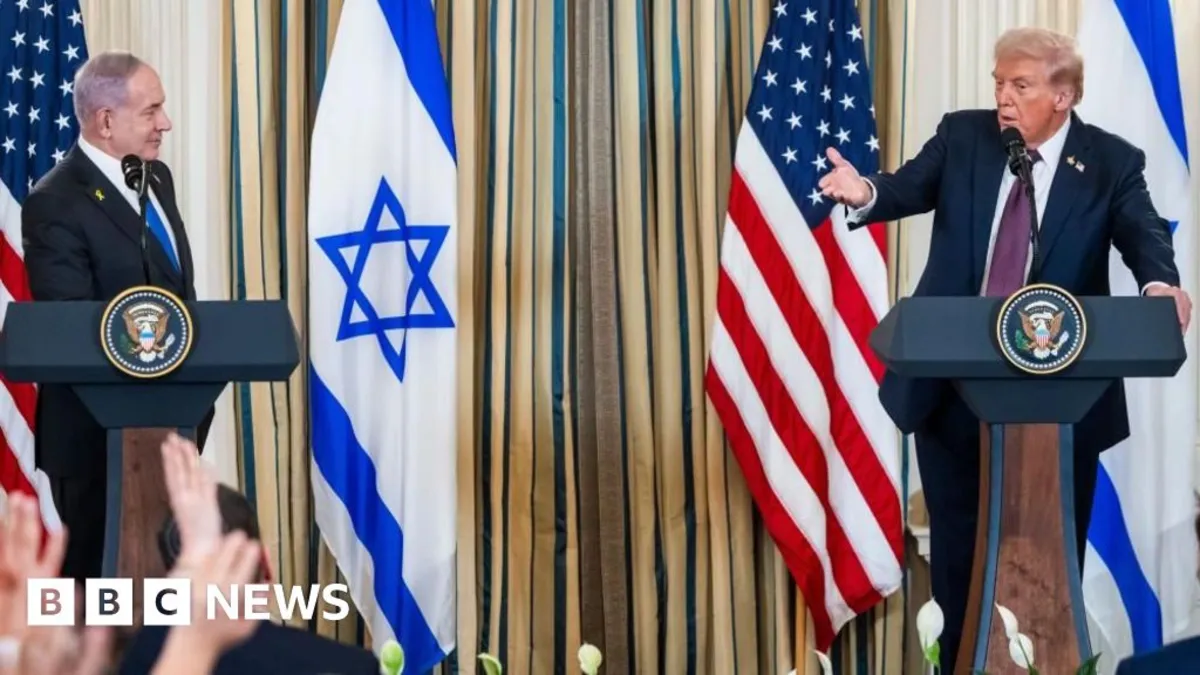
The ongoing conflict in Gaza has spurred a new proposal aimed at transforming the region into a deradicalised, terror-free zone. This initiative seeks to ensure that Gaza does not pose a threat to its neighbours, while also focusing on the redevelopment of the area for the benefit of its long-suffering residents.
If both parties agree to this peace proposal, hostilities will cease immediately. Israeli forces will withdraw to a pre-agreed line in preparation for the release of hostages. During this period, all military operations, including aerial and artillery bombardments, will be suspended, effectively freezing battle lines until conditions for a complete withdrawal are met.
Within 72 hours of Israel's public acceptance of this agreement, all hostages—both alive and deceased—will be returned. Following this release, Israel will also free 250 life-sentence prisoners and 1,700 Gazans detained after October 7, 2023, including all women and children. For each Israeli hostage whose remains are returned, Israel will release the remains of 15 deceased Gazans.
Once all hostages are freed, members of Hamas who commit to peaceful co-existence and agree to decommission their weapons will be granted amnesty. Those wishing to leave Gaza will be provided with safe passage to receiving countries, ensuring a peaceful transition for all involved.
Upon acceptance of this agreement, full humanitarian aid will be dispatched to the Gaza Strip. This aid will be consistent with previous agreements, specifically the January 19, 2025, agreement, which includes the rehabilitation of essential infrastructure such as water, electricity, and sewage systems, along with hospitals and bakeries.
Entry and distribution of aid in Gaza will occur without interference from either party and will be facilitated through the United Nations and other international agencies. The Rafah crossing will be opened in both directions under the same mechanisms established in the previous agreement.
Gaza will be governed by a temporary transitional governance comprised of a technocratic, apolitical Palestinian committee. This committee will manage public services and municipalities, with oversight from an international transitional body known as the Board of Peace. This board will be chaired by former President Donald J. Trump and will include prominent international figures such as former Prime Minister Tony Blair.
The Board of Peace will establish frameworks and funding mechanisms for Gaza's redevelopment until the Palestinian Authority has reformed and can take back control effectively and securely. This governance structure aims to meet international standards, fostering a modern and efficient administration that will attract investment.
A comprehensive economic development plan will be introduced, designed to rebuild and energize Gaza. Experts who have successfully developed modern cities in the Middle East will be convened to create proposals aimed at synthesizing security and governance frameworks to attract investments that will generate jobs and opportunities for the people of Gaza.
Additionally, a special economic zone will be established, with preferred tariff and access rates negotiated with participating countries to stimulate growth and development.
Hamas and other factions will agree to have no role in Gaza's governance, and all military infrastructure will be dismantled. A thorough demilitarisation process will be supervised by independent monitors, ensuring that all weapons are rendered permanently unusable through a decommissioning process supported by an internationally funded buyback and reintegration program.
Regional partners will provide guarantees to ensure that Gaza remains free from threats, both to its neighbours and its own citizens. The United States will collaborate with Arab and international allies to establish a temporary International Stabilisation Force (ISF) to facilitate internal security and train vetted Palestinian police forces.
As the ISF establishes stability, the Israel Defense Forces (IDF) will withdraw based on agreed standards linked to demilitarisation milestones. The IDF will progressively hand over control of Gaza to the ISF, maintaining a security perimeter until Gaza is secure from any potential terror threats.
In the event that Hamas delays or rejects this proposal, the scaled-up aid operation will proceed in areas of Gaza that have been handed over to the ISF, ensuring that humanitarian efforts continue.
To promote peace, an interfaith dialogue process will be initiated, emphasizing the benefits of tolerance and coexistence between Palestinians and Israelis. This dialogue aims to shift narratives and mindsets, fostering an environment conducive to peace.
As Gaza's redevelopment progresses and the Palestinian Authority implements its reform program, conditions may finally emerge for a credible pathway to Palestinian self-determination and statehood, aligning with the aspirations of the Palestinian people.
The United States is committed to facilitating a dialogue between Israel and the Palestinians, aimed at establishing a political horizon for peaceful and prosperous coexistence.